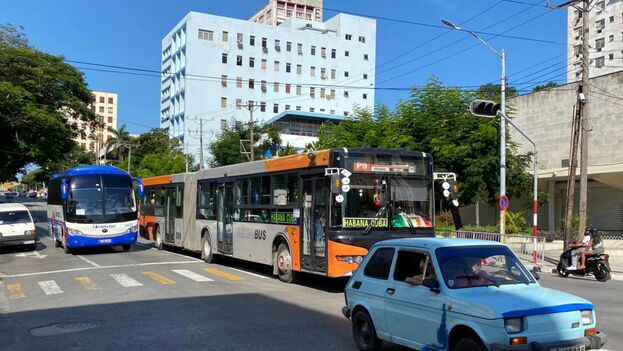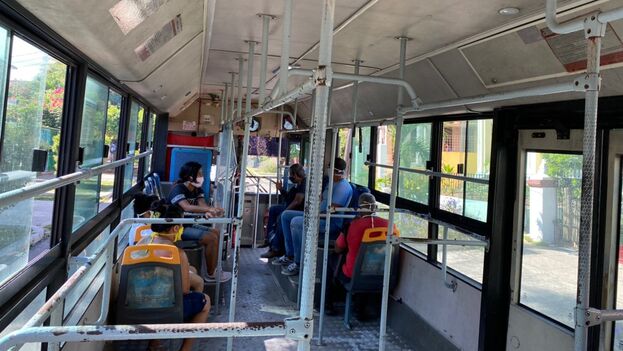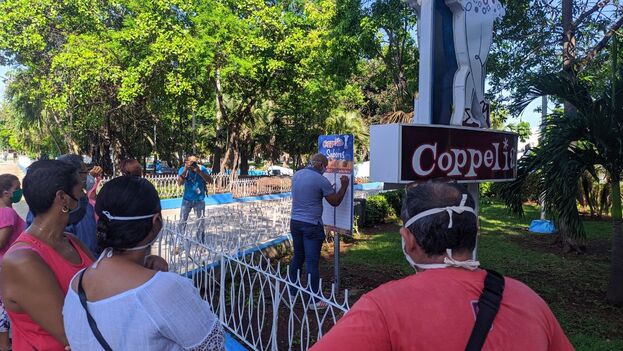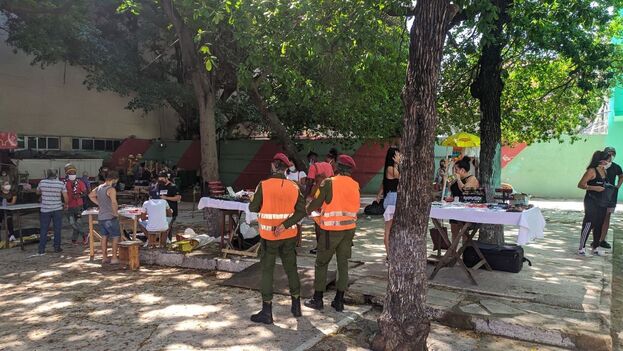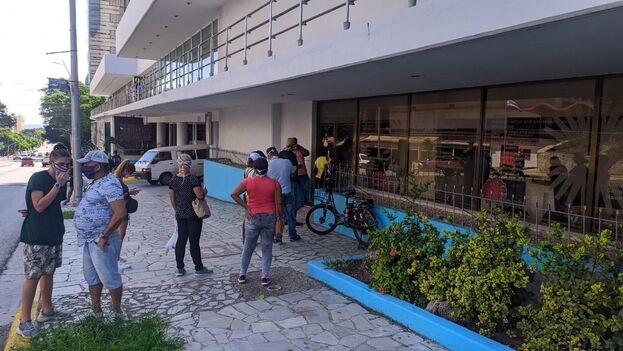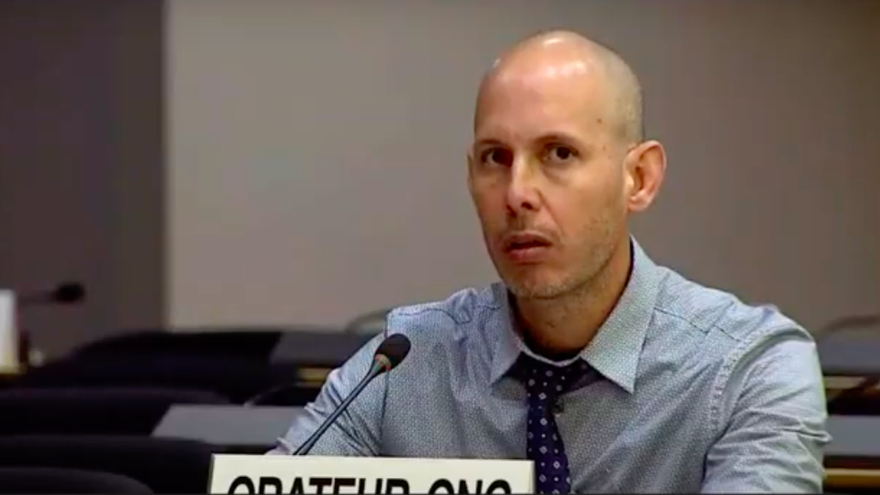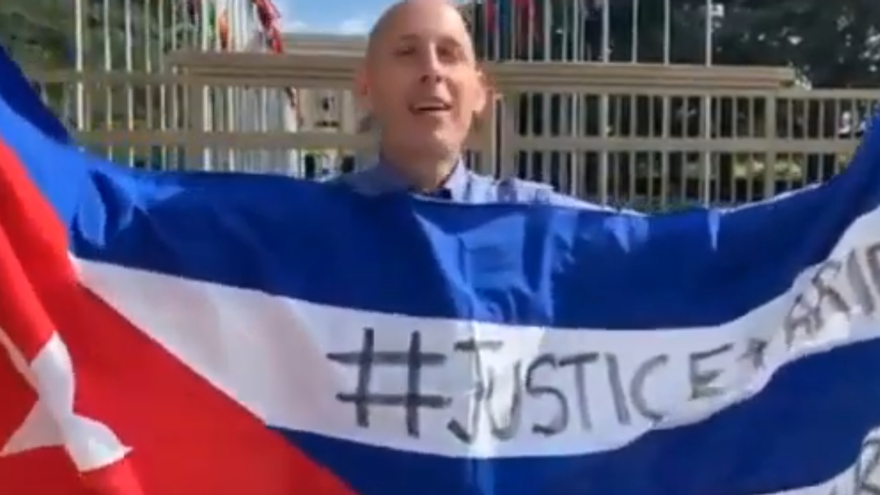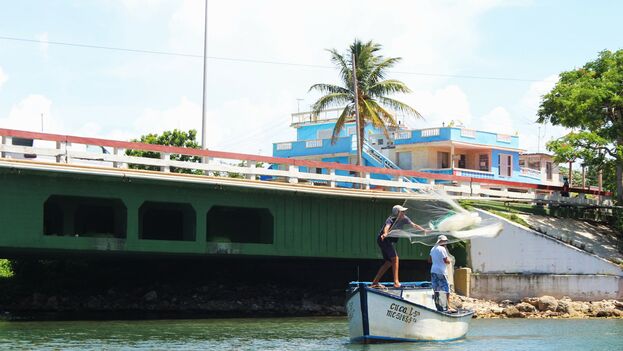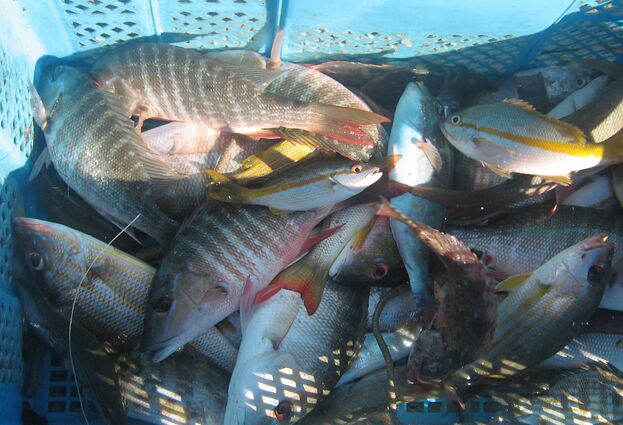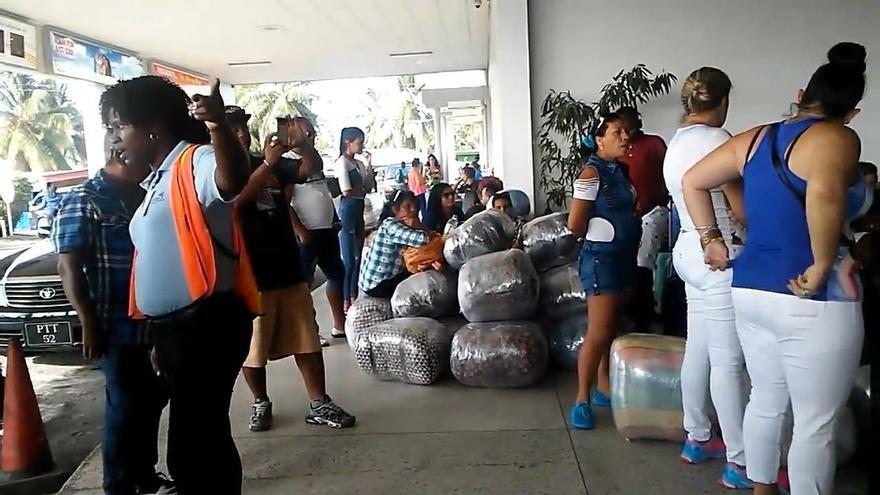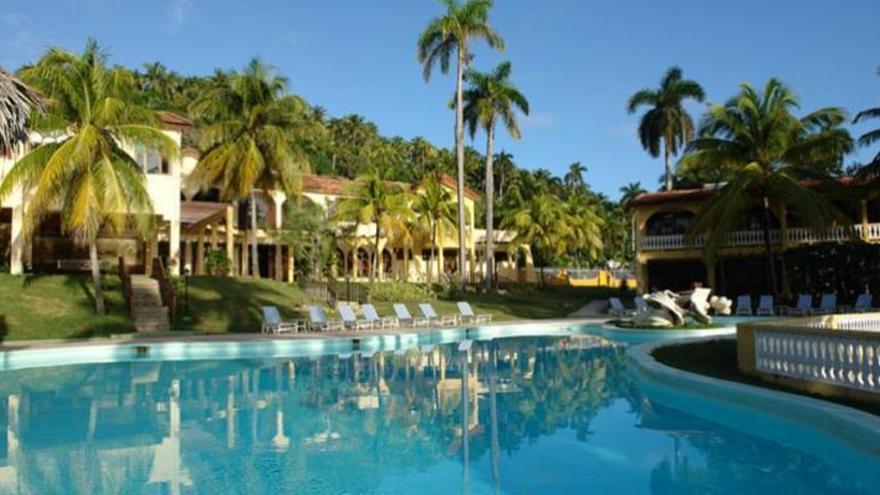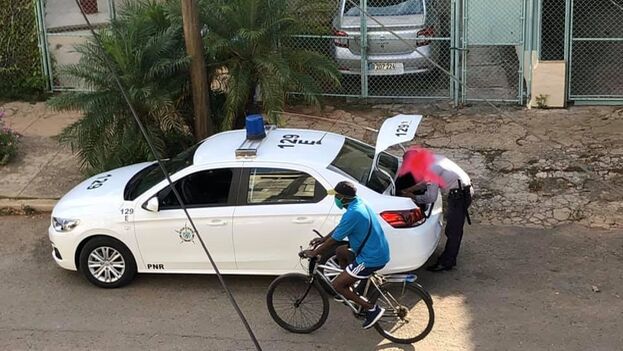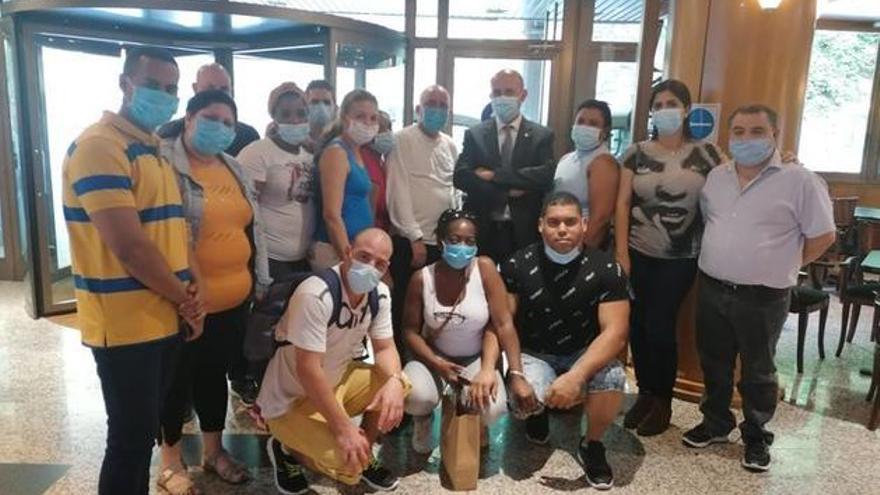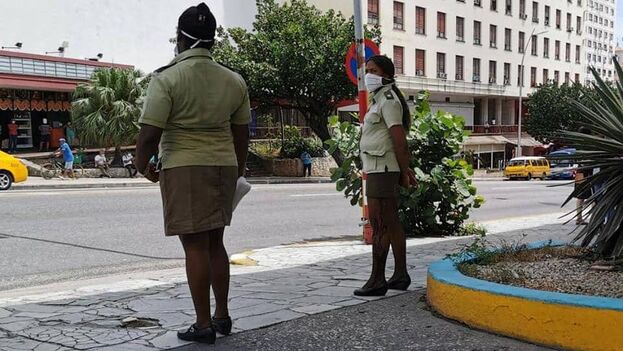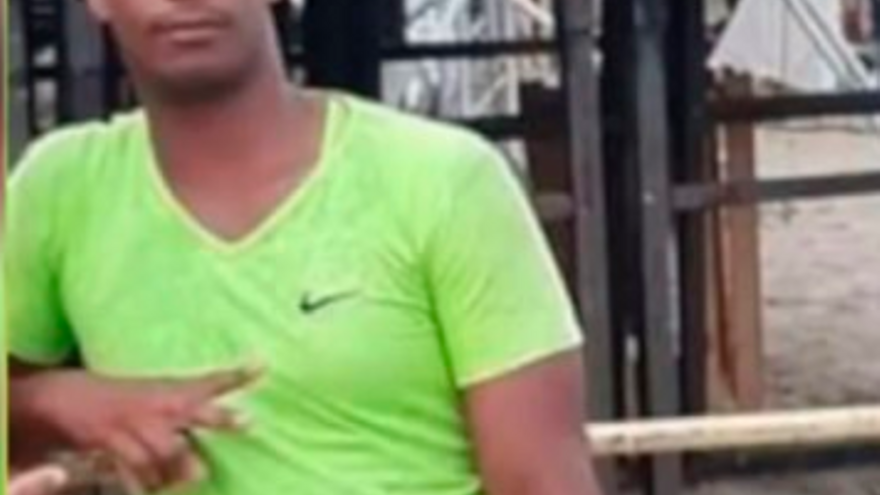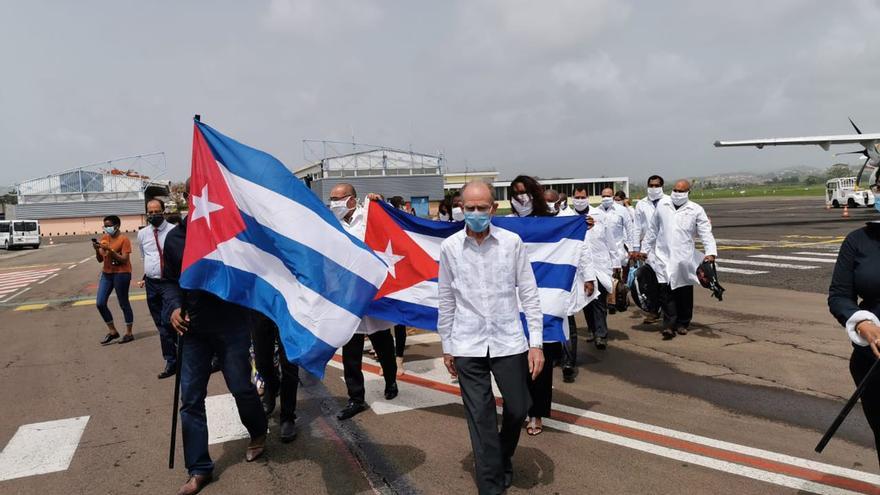
![]() 14ymedio, Juan Diego Rodríguez, Sancti Spíritus, 6 July 2020 — A number written on the forearm, several days of waiting and the uncertainty of whether they will be able to buy a fan, this is how customers experience the reopening in Sancti Spiritus of the sale of household appliances. After weeks in which only food and hygiene products were for sale, the accumulated needs on the Island have reached a critical point.
14ymedio, Juan Diego Rodríguez, Sancti Spíritus, 6 July 2020 — A number written on the forearm, several days of waiting and the uncertainty of whether they will be able to buy a fan, this is how customers experience the reopening in Sancti Spiritus of the sale of household appliances. After weeks in which only food and hygiene products were for sale, the accumulated needs on the Island have reached a critical point.
The lines to buy food and hygiene products now join those that are formed to get a fan or pressure cooker. Outside the Reparto Kilo 12 appliance store in Sancti Spíritus, employees hand out 60 turns in line each day.
“I have come three days in a row but I have not gotten a place in line. People distributed the places for today last night,” says a young man interested in a fan. Customers have a number written on their forearm and must wait several days, with the added uncertainty of not knowing if they will get what they are looking for. continue reading
The olla reina (Queen pot) made in China and whose initial sale price did not exceed 400 pesos, began to be assembled in Cuba in 2015, at the ProHogar plant in Santa Clara, in the surroundings of the Domestic Utensils Production Industry, although it is now sold mainly in convertible pesos. The worsening of liquefied gas service has also contributed to its success.
Gas canisters are only sold for the rationed market, and when distribution fails or the quota allocated to each home runs out, many families are forced to cook with firewood or electricity. But these cooking appliances have a limited life and after constant repairs it is time to replace them.
Catalina, who at the age of 74 is still in charge of cooking for her family, says that the gas canister the ration book allows her to buy once every 60 days, ran out in a month. Now she depends exclusively on electricity to put food on the table, but she has to take great care of the pot and the burner because the ability to replace them is scarce.
The breakdown of any of these pieces of equipment could mean Catalina having to wait a few days in front of a store or spending several months of her pension to buy a new one.
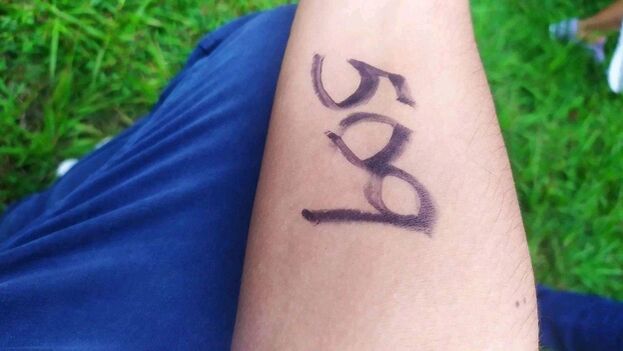
The closure of trade during the critical point of the pandemic also affected repair shops. “I have had to do almost a PhD to repair my burner because it has been broken about four times since this coronavirus started,” says Yasiel, who lives on the outskirts of Trinidad.
Tired of repairing his small kitchen over and over again, Yasiel decided to turn to the black market. “I couldn’t wait for state stores to be authorized to sell this type of product, so I looked for a contact who sold me a single-burner induction cooker for 80 CUC,” the young man tells 14ymedio.
“It was much more expensive than in the store, but it was that or nothing, because now that the shopping malls have opened, the lines are days long to buy this type of product,” he explains. The informal appliance market is not having a good time either, because most of its supplies come with mules and imports from various countries in the region, and this avenue has also been affected by the pandemic.
“The only thing I have left for sale are two ceiling fans. Until they open the borders and I can go out again I will have no more products,” confirms an informal merchant who offers his merchandise in the city of Sancti Spíritus. “There is a lot of demand because this quarantine has caused people to have to spend more time at home using household appliances, many of which have not stood up to such use and abuse.”
___________
COLLABORATE WITH OUR WORK: The 14ymedio team is committed to practicing serious journalism that reflects Cuba’s reality in all its depth. Thank you for joining us on this long journey. We invite you to continue supporting us by becoming a member of 14ymedio now. Together we can continue transforming journalism in Cuba.


